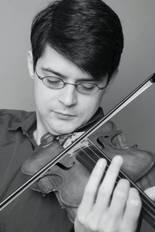Nous avons laissé le commentaire du Grand Critique musical dans sa langue d’origine. Son appréciation sur l’Opus 11 du Chevalier de Saint-Georges est pour le moins interressante.
Rappelons que Marlon DANIEL est le Directeur du FESTIVAL INTERNATIONAL SAINT-GEORGES programmé en Avril 2011 à Basse-Terre. Marlon attendait avec impatience l’avis de Donald ROSENBERG sur l’Ensemble du Monde, malheureusement diminuée par l’absence de quelques musiciens !

Donald Rosenberg, The Plain Dealer

the New York-based Ensemble du Monde
on Friday september 10 at Reinberger Chamber Hall in Severance Hall.
The chamber orchestra has an extremely French name. It’s called Ensemble du Monde, though music director Marlon Daniel and many of his musicians are based in New York.
No matter. The group focuses on a vast range of music, including works by composers of African descent.
One of those composers is Joseph Bologne, an 18th-century Guadeloupe-born musician and swordsman also known as Le Chevalier de Saint-Georges, whose Symphony in D major, Op. 11, opened the ensemble’s variable concert Friday in Reinberger Chamber Hall at Severance Hall.
The evening, a presentation of the Chagrin Valley Chamber Music Concert Series, introduced Daniel and the players in a deftly crafted program. The first half was a celebration of music from the Classical era (Saint-Georges and Mozart), while the second saluted Bohemian composers Mahler and Dvorak.
For the Classical pieces, Daniel seated the strings in the array best suited to music of the era, with violins divided on either side of the conductor. The arrangement enhanced contrapuntal clarity, allowing inner voices to be heard at all times.
Saint-Georges’ symphony is a charming three-movement creation in the style of other composers of the period, including Mozart and Haydn. The writing is concise and shapely, with a lovely slow movement and chipper activity elsewhere.
Ensemble du Monde, whose personnel on this occasion included musicians from Northeast Ohio, gave the score a bright, articulate reading. Daniel’s leadership had the virtue of grace, despite a tendency to dawdle in the slow movement.
A similar sense of leisure pervaded the Adagio in Mozart’s Violin Concerto in A major, K. 219, but the performance benefited from the elegant purity soloist Hristo Popov invested in every phrase.
Popov, concertmaster of the Opera Circle Orchestra, traced the lyrical and vibrant lines with unruffled assurance. He enabled the music to float where necessary and made easy work of the acrobatic demands. Daniel and the orchestra were alert partners.
The music on the second half fared less well. Mahler’s “Songs of a Wayfarer” were offered in an odd, reduced version that included piano and harmonium to fill out passages played by instruments not present from the original orchestration.
The soloist was mezzo-soprano Lara Nie, an intensely expressive artist whose voice penetrated the dramatic episodes. More tenderness would have been welcome in the poetic material.
The orchestra sounded unsure at times, and Daniel stretched “Ging heut’ Morgen ubers Feld” to the point where it almost stopped dead in its tracks.
Dvorak’s Serenade in E major, Op. 22, also had bumpy transitions and extreme tempos. But the strings often caressed the lovely folk melodies and provided rollicking kicks to the dance episodes.
